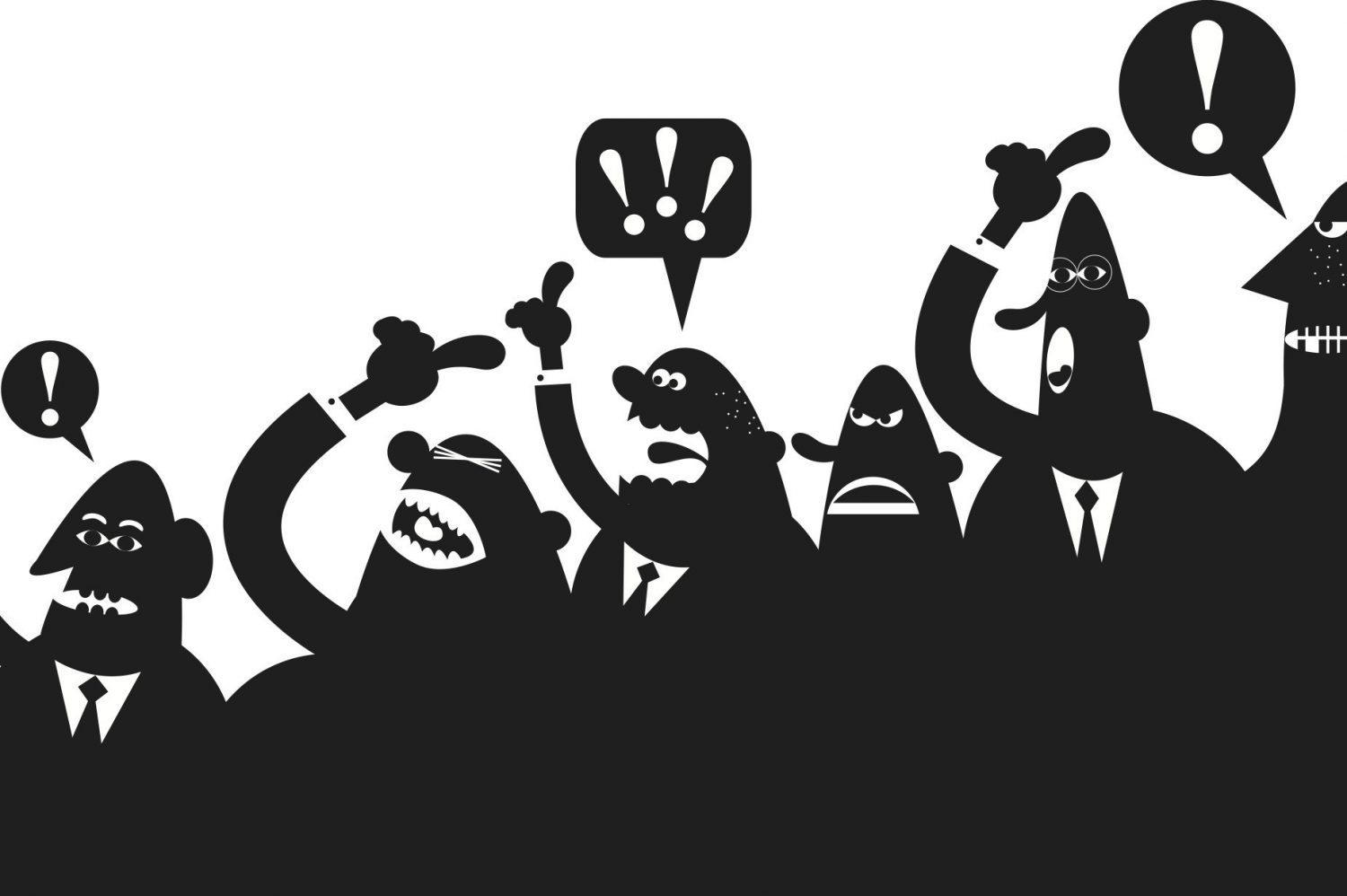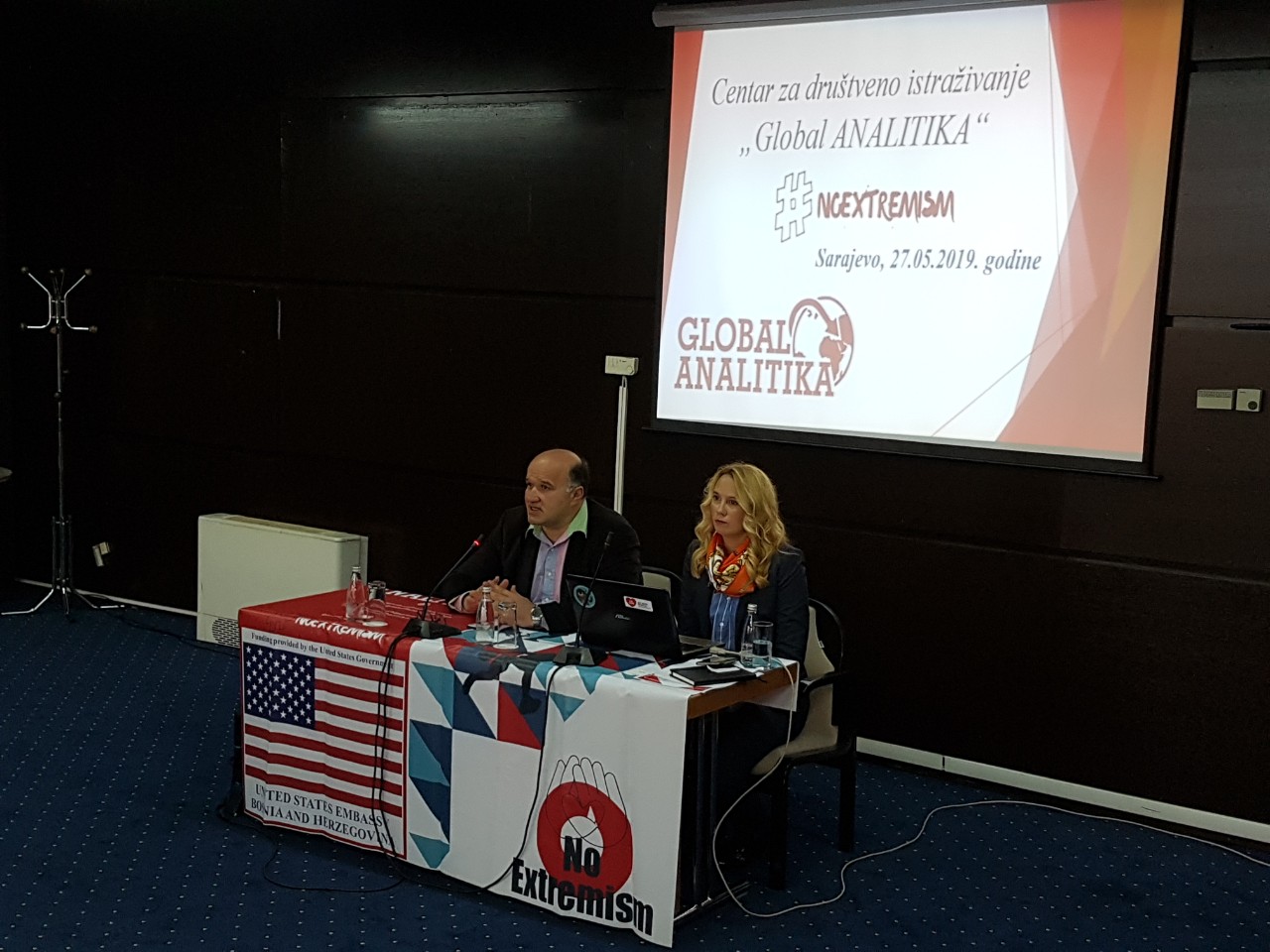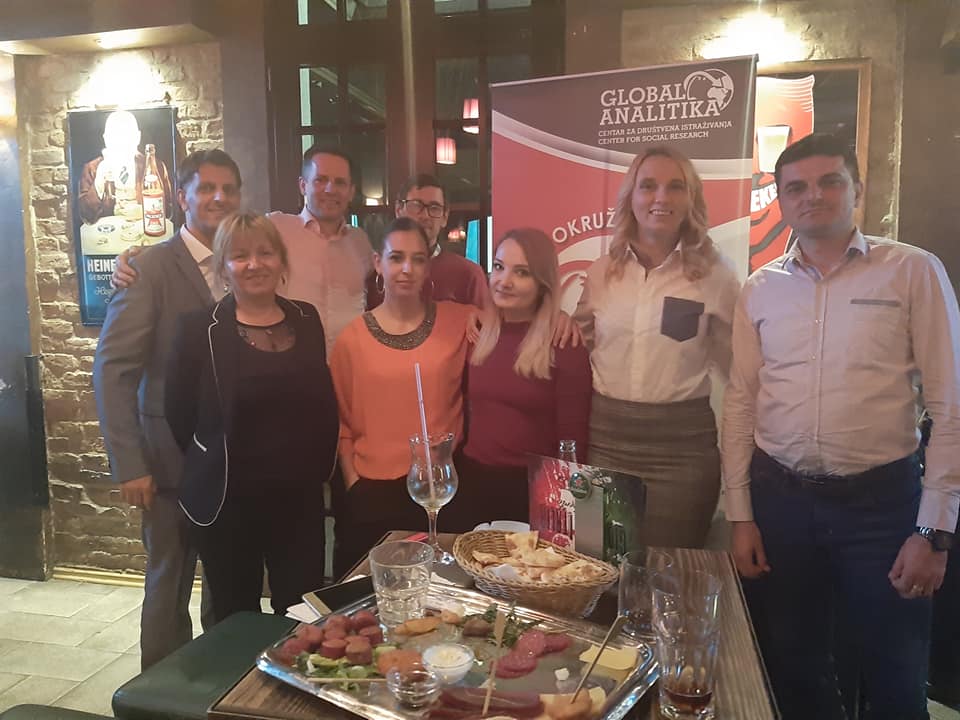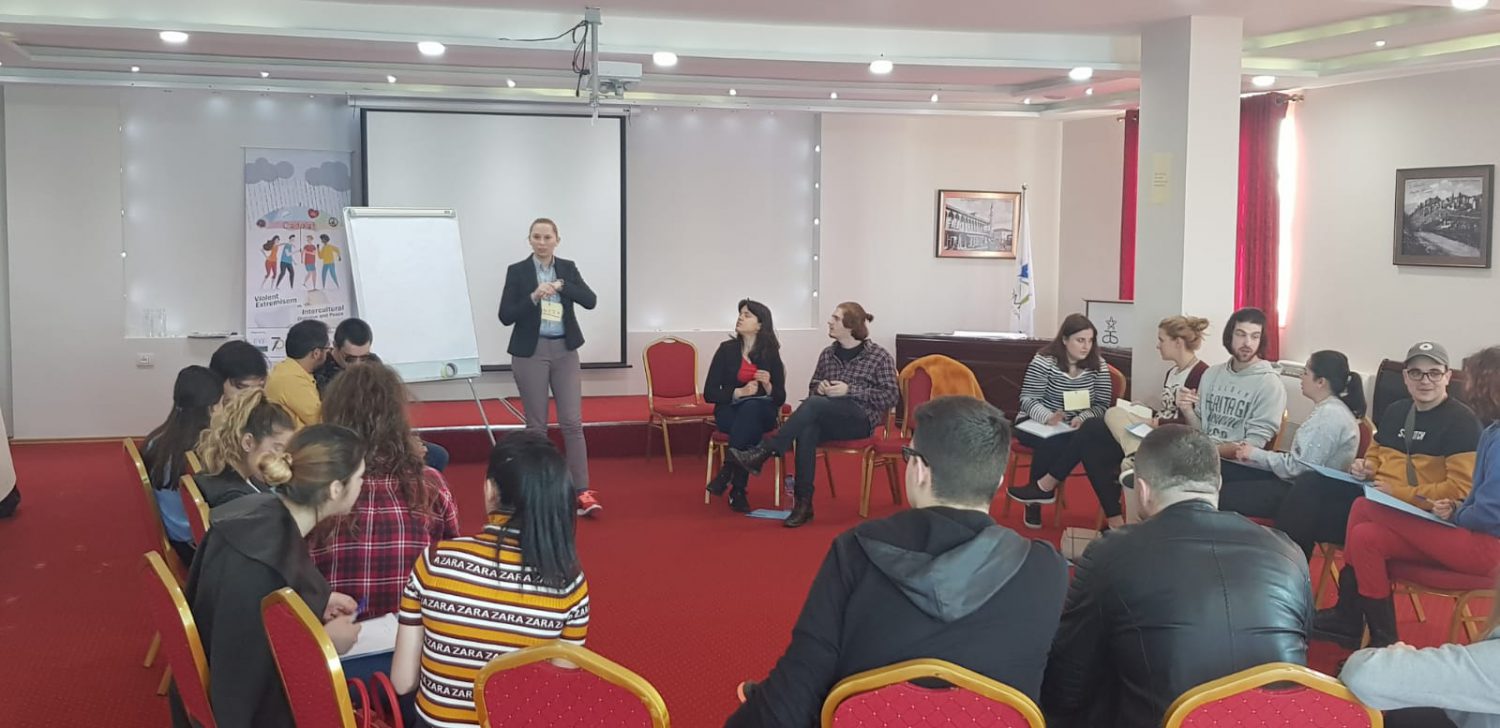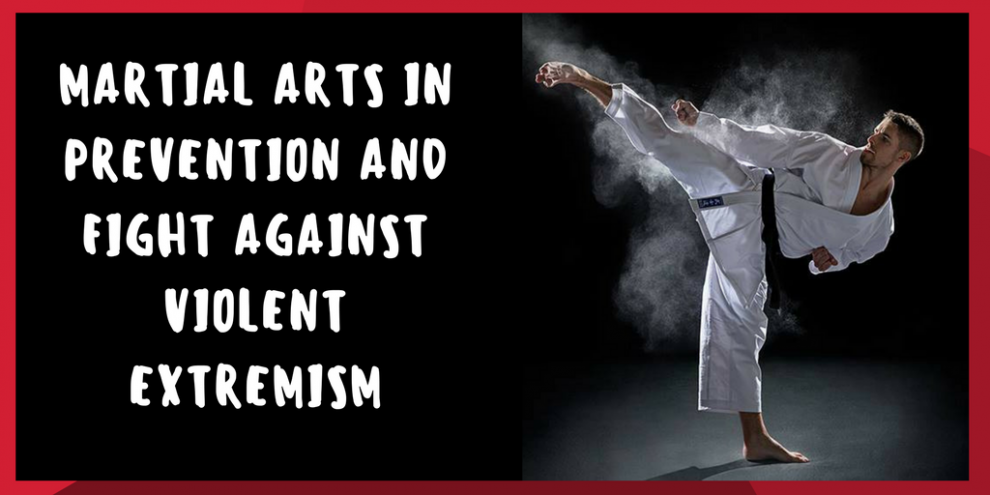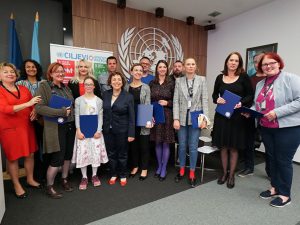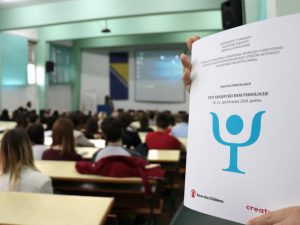UN agency United Nations Office on Drugs and Crime (UNODC) strongly encourages member states to involve civil society, the private sector, and academia in efforts to prevent and counter-terrorism.
The United Nations and civil society need to share multidimensional and diverse experiences and reiterate the application of civil society’s experience in fostering peaceful and inclusive societies around the world.
Bosnia and Herzegovina is not lagging behind other modern states in the field of prevention and countering terrorism, and has taken and undertaken a series of measures in line with UN and EU strategies. Bosnia and Herzegovina Strategy for Prevention and Fight against Terrorism 2015-2020, was adopted at the 14th session of the BiH Council of Ministers on 08th July in 2015, and foresees the following four sub-goals:
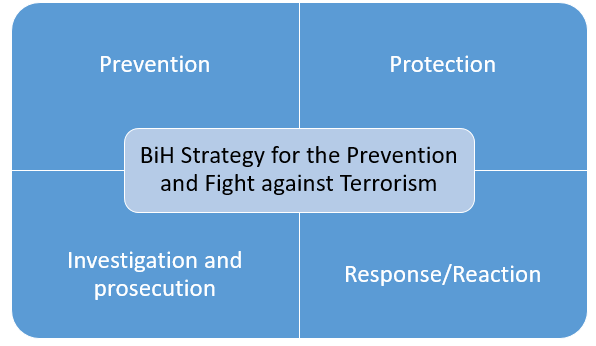
According to the Strategy: “Significant preventive effects are intended to be achieved through: cooperation with citizens and civil society organizations, work of security agencies in the community, development of specific security programs for vulnerable local communities, special emphasis will be placed on the increased participation of local religious leaders, young people, and women. The role of both the public and the private sector in all these processes must be concrete and visible at the local level.”
As a leading organization in the non-governmental sector in BiH that deals with the problem of prevention and countering violent extremism and radicalism, Global Analitika, through its research, informative, educational and other activities, strives to contribute to the goals of the Strategy. We especially see our role as a non-governmental organization in community work, and one of the ways is to support cultural, sports and other projects at the local level.
Analyzing the current situation in Bosnia and Herzegovina, but also in the world, it is clear that the ways of radicalization are changing, but also the methods of violent acts of individuals with extreme attitudes or individuals who, for other reasons and motives, take violent actions. In the last year, attacks with a knife or other cold weapons are very common, the last such attack took place on October 21, 2017. in Munich, when the attacker injured six people. According to police, suspected of attacking had mental health problems, and there was no indication of a terrorist, political or religious motive. For such and similar attacks, one of the measures to prevent and protect is the exercise of martial arts. It is known that top masters can be trained to defend themselves and others in such situations, and one of the measures for the prevention of terrorism can be support for clubs working with young people, especially in communities susceptible to extreme and violent ideologies. In addition, the positive impact of sports is important because of the impact on the psycho-physical state of the individual, and also in this way young people are getting off the street and spending their time on sports, which less exposes them to be online or some other kind of radicalization. In that direction, the research work under the title “Martial arts in the prevention and fight against violent extremism and radicalism” was created, where an author, dealt with the historical development of martial arts, the role which martial arts had for the community and the development of other skills, as well as the importance, ways and possibilities of involving martial arts in the prevention of violent extremism in the community. It is known how popular martial sports are in BiH, and these are sports that do not require a lot of expenses for the society, and it is possible to make quality programs in cooperation with sports associations, clubs, and the local community. The significance would be multiple, and it certainly would help in the prevention of violent extremism and radicalism, as well as other plagues that strike our society.
This research paper was presented at the scientific and professional conference ESPMA 2017 in the field of martial arts and sports, organized on May 19 and 20, 2017 in Sarajevo, by the Faculty of Sport and Physical Education of the University of Sarajevo and the Olympic Committee of BiH. The published scientific and professional papers of the conference bring a message of the value of martial arts and skills from a multidisciplinary approach to educational, scientific and practical aspects.
ABSTRACT
It is generally known that martial arts, beside proven benefits for practitioners, have multiple benefits for the organizations and systems from which those practitioners come. Also, it is known that martial arts can be part of a mental and physical health support system and they can also be useful for the process of healing from some negative social phenomena. One of the most actual and dangerous global social phenomena is the appearance of violent extremism and radicalism. This phenomenon has affected almost all countries of the world in a certain way, so it is also present in the countries of the Western Balkan, and therefore in Bosnia and Herzegovina. The state of Bosnia and Herzegovina has recognized the dangers of violent extremism and radicalism, so certain systemic measures and activities have been undertaken to prevent and suppress this phenomenon. Furthermore, there has been amendments of BiH Criminal Code and developed strategies and other documents that are in line with the legal regulations and recommendations of the UN, the EU, OSCE and other relevant international bodies. Research on the issue of violent extremism and radicalism shows that in order to counter this phenomenon, a holistic approach and the inclusion of as many actors as possible is necessary. Beside the fact that family, education and community have an important role, we have realized that martial arts can be very useful and helpful in preventing but also in countering violent extremism. Especially if you take into account that all martial arts have their own codex, which were created in order to confront violence and abusers.
The purpose of this paper is to point to important role that can have martial arts, tackling the current social phenomena and security challenges. In preparation of this work there were used historical, deductive and comparative methods in order to present the current state of the world, and for a comparison with the situation and opportunities in Bosnia and Herzegovina, which creates space for another new and usage of martial arts.
Key words: martial arts, violent extremism, security, phenomenon
[masterslider id=”2″]


